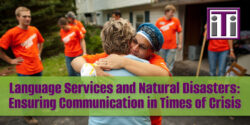Technical and scientific documents are typically created by engineers, architects, and other experts in technical fields. Professional technical translation services can ensure that these documents are accurately translated without losing important details. In this blog post, we will explore some important factors to consider when choosing a translator for your technical documents.
Consideration #1: Expertise in Industry-Specific Terminology
Technical documents often contain highly specialized language that can be difficult for non-experts to understand. Professional translators with industry knowledge can ensure that the translated document accurately conveys the intended meaning of the original text. Choosing a technical document translation company with proven experience in your field is imperative for your business.
This expertise is especially important in highly regulated industries such as manufacturing, aerospace, engineering, IT, energy and more. Here are just a few examples of documents for which accurate translations are critical: Product specifications, technical drawings, user guides and safety manuals and more.
Scientific translation documents has its own specialized terminology. For businesses including pharmaceutical, medical device manufacturers, chemical engineering, agricultural and food producers, inaccuracy in translations can have dire consequences.
Consideration #2: Human Translators
Artificial Intelligence (A.I.) has become a hot topic in language services, and has come a long way in recent years. While A.I. can be useful for translating simple phrases or words, it lacks the ability to understand the context and nuance of technical or scientific language. Considering the importance of 100% accuracy in these types of documents, it’s not a good idea to trust an A.I. translation.
Consideration #3: Cultural Fluency
A policy statement from the American Public Health Association (APHA) sites several studies illustrating the importance of translating user-facing technical documents. Workers who received safety materials in their native languages had better retention and fewer accidents.
Effective safety manual translation requires more than just linguistic fluency. It is vital that the translator understands the cultural norms of the intended audience as well. The APHA article includes several examples of misunderstandings caused by not taking local beliefs and customs into consideration.
Consideration #4: Quality Assurance Protocols
Your professional technical translation provider should have a robust quality assurance process in place. This will ensure that the translated documents meet industry standards and accurately convey the intended meaning of the original text. To guarantee the reliability of the language translations, a group of proficient native-speaking translators are utilized to examine, revise, and inspect the work.
Consideration #5: Certified Document Translation
It is the nature of technical or scientific documents to have the potential for legal ramifications. International government regulation and licensing requirements, patent applications, etc. – accurate translation is crucial to ensure compliance with regulatory bodies and avoid legal liabilities.
Incorrect or incomplete translation of medical device instructions, drug labeling, or clinical trial documentation can have severe consequences. These may include legal action, regulatory penalties, and damage to the reputation of the company.
Interpreters and Translators, Inc. offers Certified Document Translation as part of our translation service options. In the event that the accuracy of the certified translation is ever questioned in a legal proceeding, our company will attest to its accuracy and even provide testimony in court if necessary.
Check out this related post “Working with Massachusetts Certified Court Interpreters”
Conclusion
Your company stakes its reputation on accuracy and precision. So does iTi.
At Interpreters and Translators, Inc., we have the expertise and experience you’re looking for. Contact us today for a free consultation.
| Contact Us |






Comments are closed here.